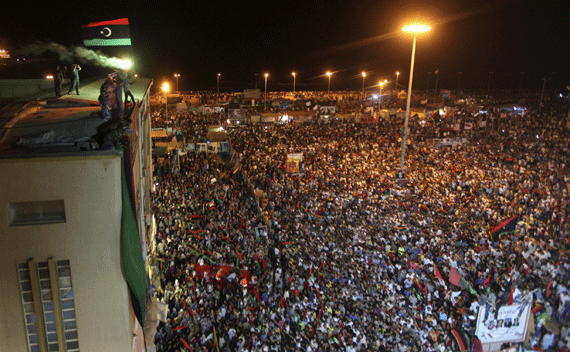Managing the Transition to a Post-Qaddafi Libya
More on:

Yesterday I moderated a conversation with Robert Danin and Daniel Serwer about how the United States can help manage the transition to a post-Qaddafi Libya. Robert and Dan both know a thing or two about working in post-conflict zones. They have a number of valuable insights to share, and I’d encourage you to read the transcript or just download the audio MP3 before you hit the gym. For the time-strapped, I want to flag two particularly interesting parts of the conversation.
Robert voiced a concern that I share about the prospects for creating a unified Libya. Qaddafi…
By design gutted all institutions of governance and civil society. He was the state. He -- when he leaves, so, too, does the state in many ways. Now, we’ve had six months in which the TNC has had some time to try to build up some nascent institutions, but that’s hardly very much time. This is a very tribalized society. It is a factionalized society. The idea of "Libyan-ness" is something that you don’t hear many Libyans talking about, and yet -- and let alone, the notion that they will exercise such an identity has to be demonstrated. So I’m very worried about a Libya that could be divided along tribal lines, along geographic lines. And they’ve been united in what they opposed, but they are not clearly united about what they stand for.
On a more positive note, Dan thinks that the lack of a single central rebel leader at this point is a “very good thing” for creating a true Libyan democracy. He elaborated:
I think at this point the most positive thing I’ve seen happening in Libya is the organization of the local councils, which are generating a kind of grass-roots leadership that no doubt will have to compete in elections eventually. And I think that’s a much better pattern for generating good democratic leadership than having a general step in at this point. I think it would actually be a failure if we ended up with a new autocrat in Libya.
For more analysis from these two, read Dan’s recent CFR piece, “Post-Qaddafi Instability in Libya,” or follow Robert’s analysis and find links to his longer works on my new favorite medium, Twitter.
More on:
 Online Store
Online Store
